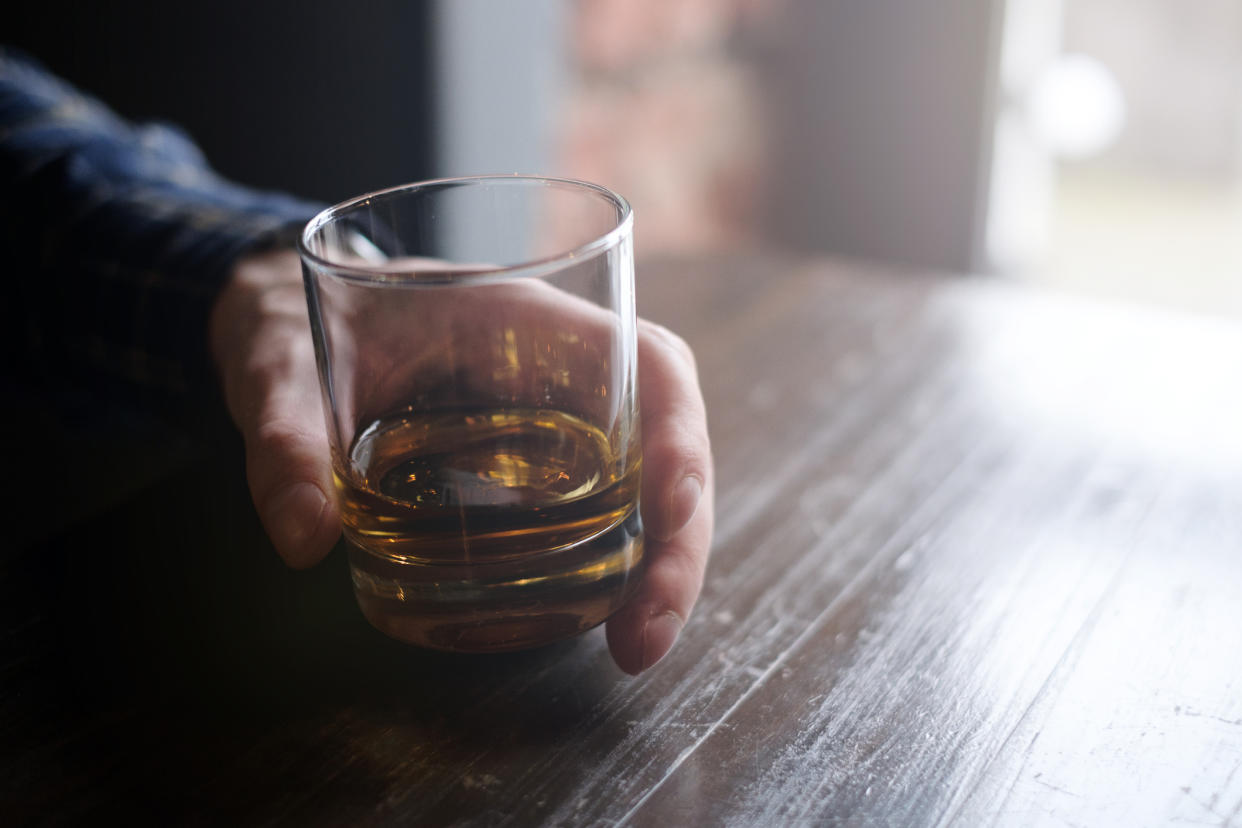If you're an alcoholic Dry January could kill you

For millions of people across the UK, February 1 brings with it a big reward – an alcoholic drink.
At least four million people are thought to have taken part in ‘Dry January’ this year, which means not touching alcohol for the full month.
But while it seems to be a force for good, for those addicted to a drink, it could actually mean serious harm – or death.
Speaking on Yahoo UK’s podcast Britain Is a Nation of…, which this week focuses on alcohol, Professor Ian Hamilton, lecturer in mental health and addiction at the University of York, warned that for those addicted to alcohol, suddenly giving up could kill them.
Healthcare data suggests that around 4.4% of the population – roughly two million people – consume almost a third of all the alcohol sold in England.
Listen to the full episode of Britain is a Nation of… below
Asked if those people should consider ‘Dry January’, Prof Hamilton told the podcast: “They definitely shouldn’t – for that 4% who are drinking more than a third of alcohol available it potentially could kill them.
“It’s quite rare to be honest but if you are quite dependant it’s going to feel really uncomfortable so you’re going to know within the first 24-48 hours whether you psychologically or physically have got a problem. It’ll happen very quickly.”
Prof Hamilton said despite its popularity, little is still understood about Dry January, adding: “I think we still don’t really understand the way people benefit or approach it – four to five million do this and we have very little understanding of how they approach it, how they benefit, etc etc.”
While it may have some benefits, Prof Hamilton said Dry January is most likely aimed at “middle class people” who don’t struggle with their alcohol consumption.
He said it may be useful as an “acid test” to see whether you’re dependant physically or mentally – as people’s reaction to withdrawal will reveal their dependance.

But he said: “My gut feeling is I think it’s for middle class people who probably don’t have a lot of a problem with alcohol and they find it pretty easy.
“That’s my gut feeling, I have nothing to prove that but I just suspect it draws in people who are quite health literate, who relax in other ways and don’t really find it much of a problem.”
He added: “There seems to be something quite attractive about us testing ourselves and challenging ourselves and I think thats great.
“But I think having the capacity to do that, certain things have got to be in place, and the obvious thing is you’re not physically and psychologically dependant on alcohol.”
His worry, Prof Hamilton told the podcast, is that Dry January provides a distraction from the 4% of “core loyal customers” who are consuming a third of the country’s alcohol.
“That’s my only concern, is Dry January distracts us away from people who really need help, really need support, and because it’s endorsed by Public Health England it’s a formal way of saying, ‘oh we’re doing something on alcohol’.”
To hear more unpacking of statistics about British people, listen to the full episode above, or download it on Apple Podcasts, Acast, or Spotify to listen while on the go.



